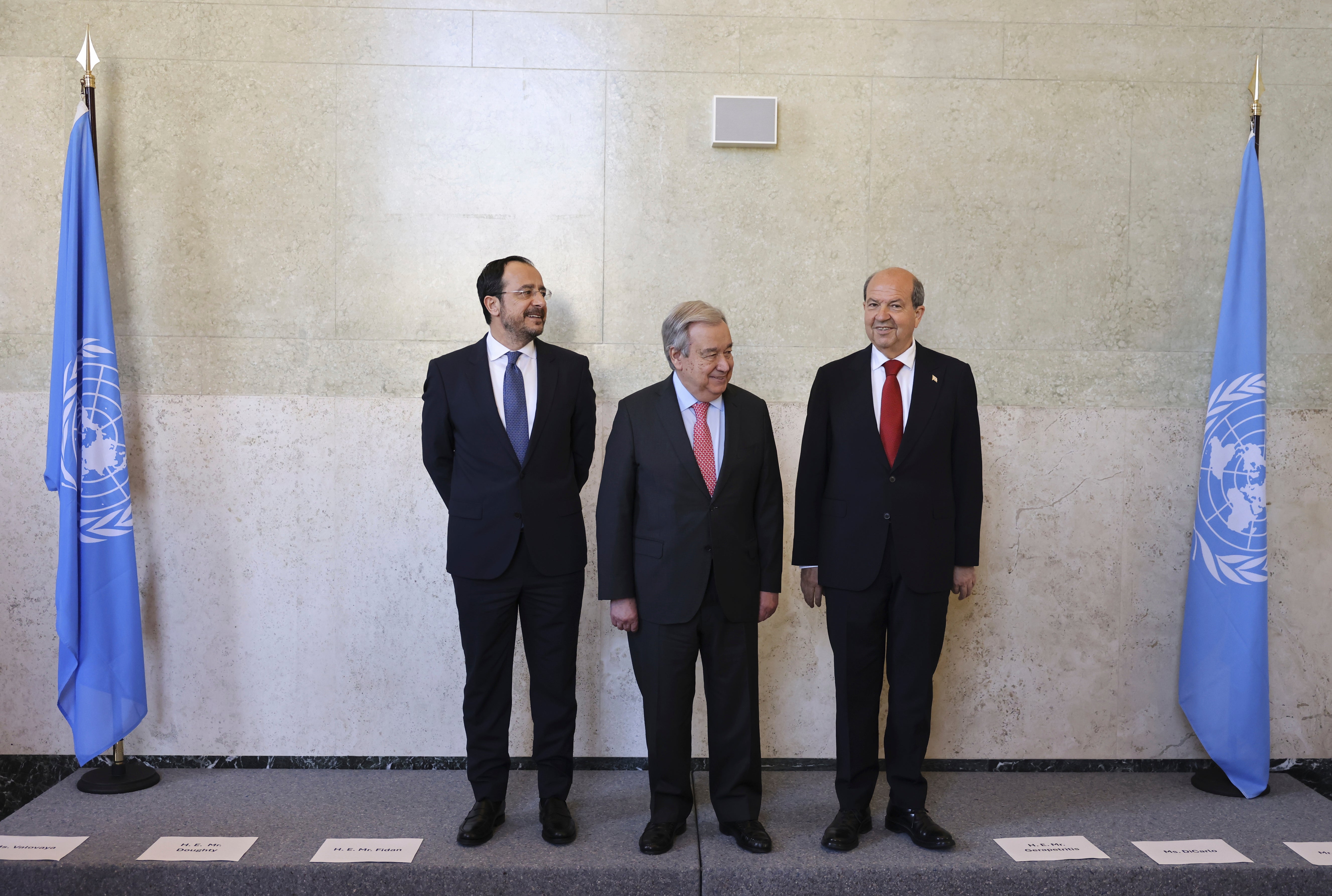The Cyprus issue has gone on too long – and yet, the solution is simple
To me, the answer to this issue is simple, writes former foreign secretary Jack Straw. Fresh thinking is required to excise this tumour from the body of Europe


This week, a meeting between the Turkish Republic of Northern Cyprus (TRNC), the Republic of Cyprus, alongside the guarantor powers of Greece, Turkey and the UK, is due to take place in Geneva under the backing of United Nations secretary general Antonio Guterres.
This marks the second round of discussions since the 2017 Crans-Montana talks, where negotiations fell apart after the Greek-Cypriot side negotiated in bad faith and walked away from a compromise.
Previous UN proposals, led by Kofi Annan, were presented to both peoples in referendums in 2004, having been initiated by leaders on both sides. While the Turkish Cypriots overwhelmingly approved the proposals, 76 per cent of Greek Cypriots, stirred up by their president, Tassos Papadopoulos, flatly rejected them.
But 2017 is a political lifetime ago; around the world, the rules-based order which has underpinned world stability since the 1940s is collapsing. Nonetheless, it is a system which has allowed this crisis to remain just that – a crisis.
The inaction on the Cyprus issue which has frozen this struggle in time simply cannot be allowed to endure. Fresh thinking is required to excise this tumour from the body of Europe.
To me, the answer to this issue is simple. The only realistic way forward for the island is a two-state solution – a view shared by the TRNC and Turkey. The Greek Cypriots remain doggedly committed to the long-failed federal proposal.
The realpolitik of the situation is stark. Greek-Cypriot president Nikos Christodoulides’s performance in the polls is dire – 55 per cent of respondents in a recent poll expressed a negative view of his leadership and his handling of the Cyprus issue was backed by only 36 per cent.
With legislative elections due to be held in the south next year, the Marxist-Leninist far-left AKEL Party are currently surging in the polls. (AKEL began life as the Communist Party of Cyprus). Christodoulides is simply not going to give any ground in these talks and provide AKEL with a useful cause celebre.
This is particularly important, given that AKEL has long advocated for the removal of British forces from Cyprus and the handover of the UK’s strategically vital Sovereign Base Areas – spurred on by the Chagos debacle. This would be disastrous to our interests in the region.
So where can meaningful change come from? The EU will not be present – a positive step, given the ludicrous comments from Ursula von der Leyen, who declared a few years ago that the EU would “never ever” accept a two-state solution for the island.
This leaves the door open for the UK and its representative, Foreign, Commonwealth and Development Office minister Stephen Doughty, who have the ideal platform to demonstrate leadership, cut the Gordian knot and attempt to find a sustainable solution to a problem that has plagued Europe for decades.
TRNC president, Ersin Tatar has previously criticised the UK for no longer serving as a neutral guarantor in Cyprus. It is fair to say that the Greek-Cypriot viewpoint has become the norm, spoon-fed to ministers and diplomats alike in the Foreign Office. I’m not sure that is fair.
The problem arises from the fiction that the internationally recognised Republic of Cyprus controls the whole island, which it does not and in practice never will, compounded by the EU’s decision – of which to my regret I was a party – of allowing the south to join the EU as if it represented the whole island.
I acknowledge that any shift in position will have to be approached carefully, especially by the UK, given the strategic importance of its sovereign bases in the south. However, the potential benefits of a settlement in Geneva – for both the south and the north in the long run – make it a goal worth actively pursuing.
Following publication of this article, the High Commissioner of the Republic of Cyprus in the UK, Dr Kyriacos Kouros, write to say: “I agree with Mr. Straw that the issue has gone on too long, and that fresh thinking might help us conclude that last mile needed to resolve it. The protracted nature of the conflict, however, illustrates the dysfunctionality of the current international system, which applies double standards. Especially in the case of Cyprus, in 1974 and the years preceding, the international response to the military aggression that took place against Cyprus fell short of what one would expect under the UN Charter.
“On the matter of a ‘simple’ solution for Cyprus, which Mr. Straw suggests as a two-state solution, is a claim that aligns him with the view of the occupying power in Cyprus and its subordinate local administration. This ‘simple’ approach overlooks the reality that the international community, including successive British governments, has not endorsed it, for the simple reason that it would be legitimising the product of military aggression.
“I urge Mr. Straw to reconsider the narrative he has adopted for over a decade now, on what is essentially an argument for the delegitimisation of the internationally recognised government of the Republic of Cyprus. Furthermore, accepting military interventions as a resolution to any conflict, no matter how longstanding, would only open a Pandora’s box, replacing one problem with a worse one. Greek- and Turkish-Cypriots alike are deeply traumatised by the conflict in Cyprus, and we seek a viable and lasting settlement.”
Join our commenting forum
Join thought-provoking conversations, follow other Independent readers and see their replies
Comments
Bookmark popover
Removed from bookmarks